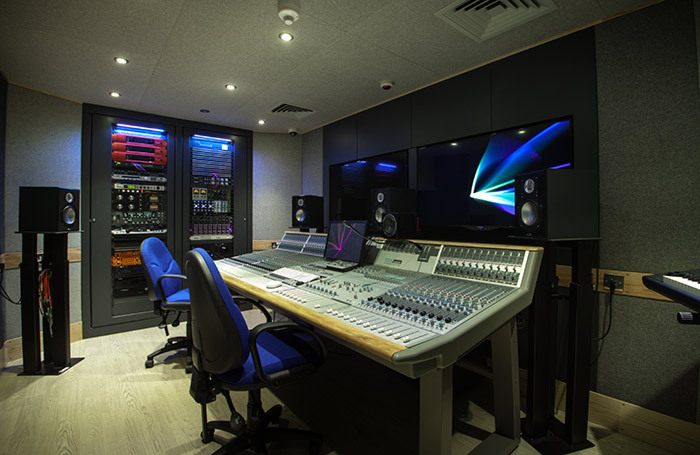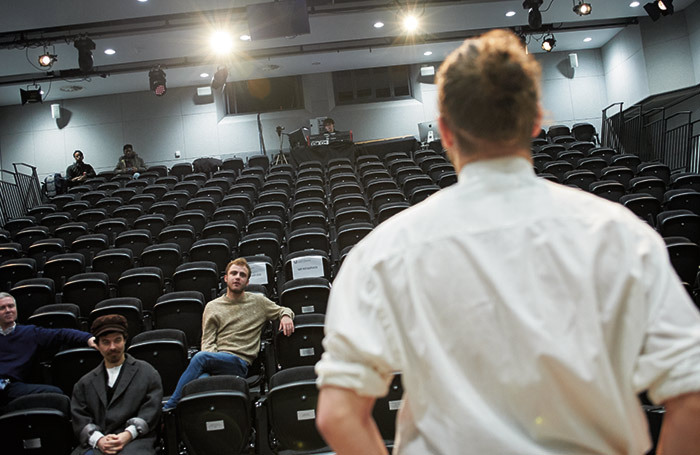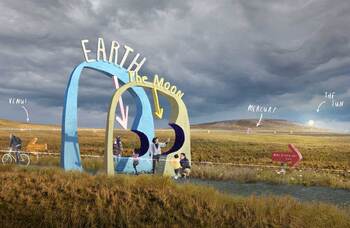How London College of Music's BA in Acting can make you top of your game
Training as an actor today means excelling in more than just performance to make it in an ever-changing industry. LCM’s BA (Hons) Acting offers access to world-class facilities, allowing students to become familiar with all the technologies they will need to become the sought after, multi-skilled graduates of tomorrow
The world of acting has changed hugely in the past few years. Self-tapes, live streams, motion capture and other technologies are now integral parts of being an actor – and they are here to stay.
The innovative new BA (Hons) Acting (Performance) at London College of Music (LCM) has been designed with these changes in mind.
By incorporating cutting-edge technologies with outstanding training in the foundations of acting, LCM trains multi-skilled, adaptable and successful actors for the 21st century, ready for every challenge that comes your way.
“That’s the benefit of being able to design a course from scratch,” says course leader Dr Isla Hall, whose own background combines academia and an extensive career as an actor. “The focus is on allowing students to create a bespoke portfolio of skills, with students pursuing the things that capture their imagination.”
London College of Music is part of the University of West London (UWL), which was named by the Guardian last year as one of the top 10 UK universities for drama and dance. Teaching takes place on the university’s leafy Ealing campus in West London, in a superbly equipped suite of studios and teaching spaces, including a fully equipped 200-seat black box studio theatre with professional lighting and concert sound systems. Students also have full access to UWL’s world-class facilities, as well as its libraries, bars, pastoral support and societies.
Being embedded into UWL allows for a cross-pollination of expertise and ideas that, Hall explains, is invaluable. “Students can collaborate closely with those on other courses. Our acting students can work in the recording studio to learn about voiceovers and dubbing. They can work with film students, learning the basics of editing and continuity. We also work with the gaming and visual effects students, creating voiceover work for their visual effects and games.” As Hall points out, gaming is one of the biggest sectors in the entertainment market, presenting many opportunities for actors.
UWL also boasts a motion capture studio, where students are able to experiment with motion capture techniques, creating characters, wearing motion capture suits and collaborating with students on the BA (Hons) Visual Effects course. “In fact, I recently invited leading motion-capture actor Ace Ruele to run workshops with the students about his work in motion capture. It was incredible to work with him and hear about his journey to the top of his game.”
The course runs across three years. In the first year, students kick off with intensive skills-based modules and each semester culminates in sharing a project that showcases their learning. In the second year, students are introduced to the vast range of technologies that can enable them to be more rounded, adaptable actors.
Hall recognises that the more skills an actor has under their belt, the more likely they are to find work and sustain a successful career in the industry. So the second year, as well as its focus on technology, encourages students to diversify their portfolio with modules on producing their own work, marketing themselves, and film-making, among many other options.
It is about flexibility: the modules offer introductory training in a variety of skills which the students can choose to pursue more deeply through cross-course student collaborations. This provides students with networking opportunities, and supports them in becoming more flexible and adaptable performers when they join the industry.
Continues...
Alongside those module options, sits a rigorous foundation in acting techniques. “Everything is practice-led,” says Hall, “with skills-based workshops and practical projects, but students are still encouraged to critique the work and to think deeply about the techniques we study.”
The final year consists of a large-scale practice research project, with students combining their efforts to create a festival of work that will be shared with audiences, in addition to a director-led public production.
“The people that I know who are doing really well for themselves and sustaining a career with longevity are those who are able to make their own work and engage with different mediums. That’s really what we were trying to emphasise across this course.”
For Hall, there is no right way to sustain a career in the performing arts industry. The degree course at LCM is all about developing a portfolio of skills, pursuing different disciplines, finding what works for you.
Hall herself has an extensive career as an actor, having trained in South Africa and then at the Royal Central School of Speech and Drama. Her own credits include Jeremy Herrin’s acclaimed production of Duncan Macmillan’s People, Places and Things, and the West End production of The Exorcist with renowned director Sean Mathias.
Alongside her acting career, Hall has an academic background, having completed a PhD investigating gender bias in casting. As an experienced academic and teacher, one of Hall’s priorities in creating the course at LCM was putting accessibility and inclusivity at its heart. “We have a really diverse student body which we’re very proud of. A lot of our students come from different ethnic backgrounds, different nationalities and different cultures.”
Hall is proud of LCM’s diverse teaching body, too. “Our teachers offer industry expertise, and an ethos of inclusivity central to our work at LCM. They additionally offer diverse representation in gender, ability, race, age, and sexual orientation.”
Inspired by working with her PhD supervisor, neurodiversity expert Professor Nicola Shaughnessy, Hall worked to ensure that the curriculum supports diverse approaches to learning. “Quite a high number of our students would identify as neurodivergent and we make sure that different learning abilities are catered to. That can be simple things, for example, I often use resources such as podcasts or other activities in addition to reading work, so that different ways of learning are encouraged.”
Above all, the BA in Acting at London College of Music is about nurturing more than just actors. “We encourage a multi-skilled approach,” says Hall, “so that you’re entering the industry with a very diverse set of skills, as well as an adaptability and flexibility that means you can thrive whatever and wherever the work may be.”
The Big Idea
The Big Idea
Most Read
Across The Stage this weekYour subscription helps ensure our journalism can continue
Invest in The Stage today with a subscription starting at just £5.99





